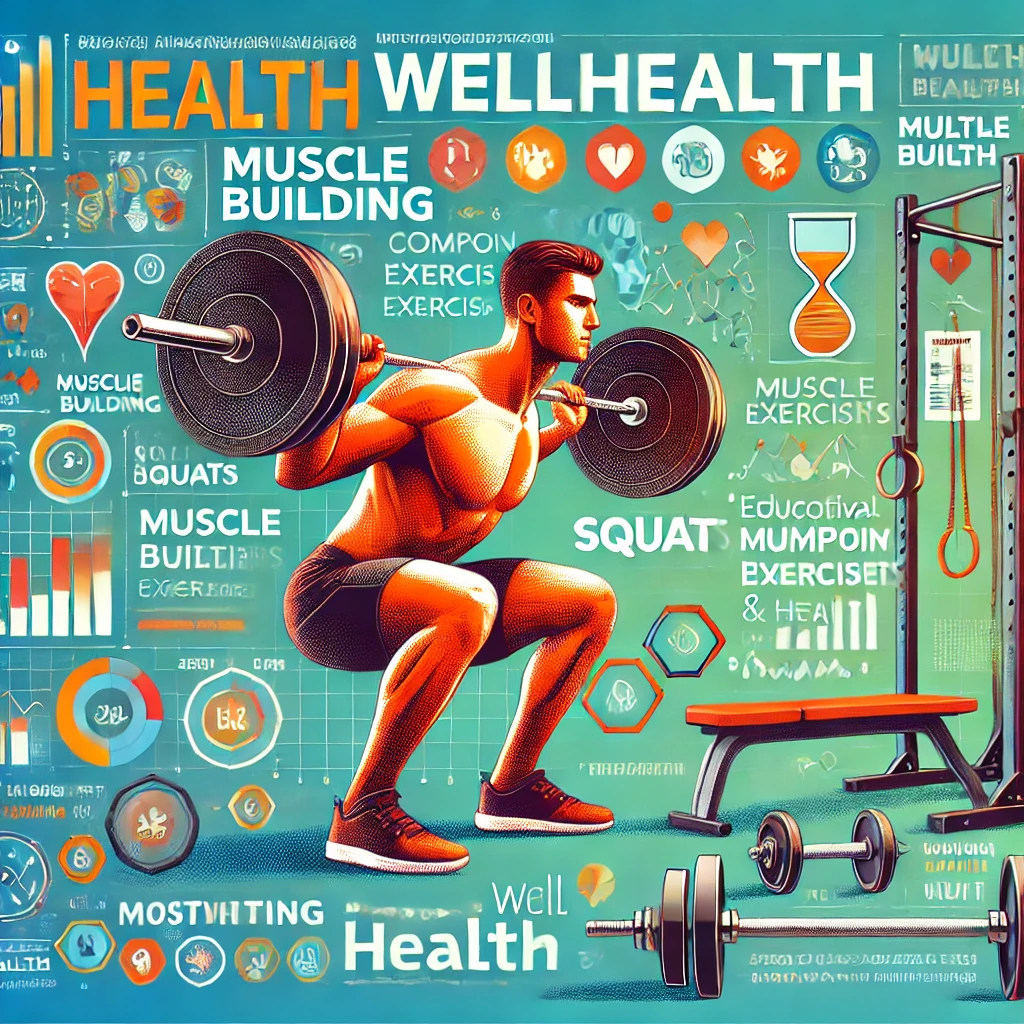A Healthy Life Wellhealthorganic Tips for a Better, Longer Life

In today’s fast-paced world, maintaining a Healthy Life Wellhealthorganic is more important than ever. With the rise of sedentary habits, fast food consumption, and mental health struggles, focusing on our well-being can significantly improve our quality of life. The concept of healthy living goes beyond physical health; it incorporates emotional, social, and mental well-being too. In this article, we will discuss practical tips, habits, and strategies to help you embrace a healthy life and achieve your wellness goals.
Nutrition: The Foundation of Healthy Life Wellhealthorganic

Proper nutrition is the cornerstone of a healthy lifestyle. What we eat directly impacts how we feel, our energy levels, and even our mental health.
Balanced Diet: It’s essential to consume a variety of foods to provide the body with all the nutrients it needs. Aim for a balanced diet rich in fruits, vegetables, whole grains, lean proteins, and healthy fats.
Fruits and Vegetables: These are packed with vitamins, minerals, and antioxidants that help combat inflammation, boost immunity, and prevent chronic diseases. Incorporate colorful options into your meals, such as spinach, kale, berries, tomatoes, and bell peppers.
Whole Grains: Oats, quinoa, brown rice, and barley are rich in fiber, which aids digestion and helps maintain a healthy weight. Choose whole grains over refined grains for long-term health benefits.
Lean Proteins: Incorporate lean meats, fish, eggs, legumes, and nuts into your diet. These are vital for muscle repair, growth, and overall health. Fish like salmon, rich in omega-3 fatty acids, supports brain and heart health.
Healthy Fats: Avocados, olive oil, and nuts are sources of monounsaturated and polyunsaturated fats, which are good for heart health. Moderate consumption of these healthy fats can help improve cholesterol levels.
Also, read Wellhealth How to Build Muscle Tag Effectively
Physical Activity: Moving Toward Fitness
Exercise plays a pivotal role in living a healthy life. It boosts cardiovascular health, enhances muscular strength, and promotes mental wellness.
Regular Exercise: Incorporating physical activity into your daily routine doesn’t require intense gym sessions. Moderate physical activities, such as brisk walking, jogging, cycling, or yoga, can deliver significant health benefits. Aim for at least 30 minutes of moderate activity most days of the week.
- Strength Training: Engaging in strength training exercises like weight lifting, resistance bands, or bodyweight exercises helps build muscle mass and maintain bone density. Muscle mass tends to decline as we age, so it’s important to focus on strength training.
- Cardiovascular Exercise: Aerobic exercises such as walking, running, cycling, and swimming improve heart and lung health. Regular cardio also boosts mood and reduces stress.
Stretching and Flexibility: Incorporating stretching routines or practices like yoga into your routine not only increases flexibility but also improves posture and reduces the risk of injuries.
Adequate Sleep: Resting for Recovery
Sleep is often overlooked but is crucial for a healthy life. A proper sleep routine affects mental clarity, immune function, and overall energy levels.
Sleep Requirements: The recommended amount of sleep for adults is 7 to 9 hours per night. Poor sleep can contribute to a range of health problems such as obesity, heart disease, and depression. To improve sleep quality, ensure your bedroom is dark, cool, and quiet. Limit screen time before bed, as blue light can interfere with melatonin production and disrupt your sleep cycle.
Sleep Hygiene: Establish a consistent bedtime routine. Going to bed and waking up at the same time daily can regulate your body’s internal clock. Creating a relaxing pre-sleep ritual, such as reading or meditating, can promote deeper rest.
Mental Health: Prioritizing Emotional Well-Being
Mental health is just as important as physical health. Emotional well-being impacts every aspect of your life, including relationships, job satisfaction, and physical health.
Stress Management: Chronic stress has detrimental effects on both mental and physical health. Practice stress-relief techniques like mindfulness, deep breathing exercises, meditation, or spending time in nature. Mindfulness allows you to be present and aware of your emotions, which helps reduce stress and improves decision-making.
Mental Health Practices:
- Journaling: Writing down your thoughts and emotions can help reduce anxiety and clarify your mindset. It’s also a great way to process difficult emotions.
- Support Systems: Whether it’s family, friends, or a professional therapist, having a strong support system can improve mental resilience and offer assistance during tough times.
Hydration: Drinking for Health
Water is essential for our survival. Staying hydrated keeps bodily functions running smoothly, improves skin health, enhances physical performance, and aids digestion.
How Much Water Should You Drink?: The general guideline is to drink at least 8 cups (64 ounces) of water a day. However, individual needs vary depending on factors such as activity level, age, and climate. For example, people who engage in intense exercise may need more water to compensate for sweat loss.
Hydration Tips:
- Drink a glass of water first thing in the morning to kick-start your metabolism.
- Carry a reusable water bottle throughout the day as a reminder to drink water regularly.
Healthy Habits: Building Your Routine

Incorporating positive habits into your daily routine sets the foundation for a long and healthy life. In addition to the basics of exercise, nutrition, sleep, and hydration, focus on developing mindful habits that promote well-being.
Healthy Habits to Try:
Get Sunlight: Vitamin D is critical for bone health and immune function. Spend some time outdoors during daylight hours, even if it’s just for a short walk.
Limit Screen Time: Spending too much time on screens (computers, phones, televisions) can lead to eye strain and poor posture. Implement screen time limits to maintain eye health and reduce the risk of digital overload.
Quit Smoking and Limit Alcohol: Smoking damages nearly every organ in your body. Limiting alcohol intake helps prevent liver disease and supports heart health.
Preventive Healthcare: Early Detection and Monitoring
Taking care of your health also means staying proactive. Regular check-ups, screenings, and vaccinations help detect potential problems before they become serious. Preventive measures are the key to ensuring long-term health and longevity.
- Annual Health Checkups: Regular visits to the doctor for physical exams are important. Your healthcare provider can detect signs of problems like high blood pressure, diabetes, or cholesterol imbalances.
- Vaccinations: Immunizations protect you from various diseases. Stay updated on vaccines recommended by health authorities.
- Dental Health: Oral health is equally important. Regular dental check-ups, brushing twice a day, and flossing can prevent oral health issues.
Conclusion
A Healthy Life Wellhealthorganic is all about making intentional choices and taking proactive steps towards well-being. By incorporating balanced nutrition, regular physical activity, enough sleep, and mental health practices into your life, you’re setting the stage for a long, vibrant existence. Hydrate well, cultivate positive habits, and maintain regular health checkups to ensure you’re always on the right track.
Embark on this journey with patience and commitment, and the results will reflect in every aspect of your life.
For more tips on living a healthy life, don’t forget to follow trusted health resources and professionals to continue learning.

Shane Doe
I am an Expert Writer, passionate about delivering insightful and engaging business content. With a keen eye on market trends and industry developments, I aim to keep you informed and ahead of the curve in the ever-changing business world.
Related Posts
Latest Posts
Don’t miss
Share It!
Subscribe to Updates
Get the latest creative news from FooBar about art, design and business.



